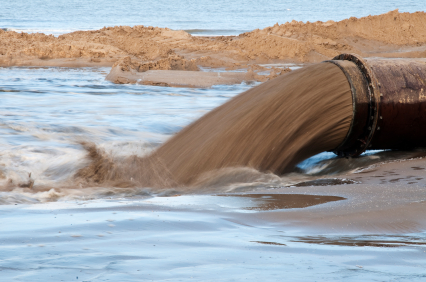“Pharma industry links to rising antimicrobial resistance levels in India”
“Turns out, India’s pharmaceutical industry is contributing to rising antimicrobial resistance (AMR) levels due to their polluters – air, soil and water. It is found that exposure to these polluters are aiding the development of AMR in population at large.
One of the dangers of pharmaceutical effluents is the rapid spread of antimicrobial resistance. Multiple studies have explored the impacts of pollution from pharmaceutical production sites and supply chains. Nordea, a financial services group in the Nordic and Baltic region, made a field trip to Hyderabad and Vishakhapatnam, India in 2015, where they found “disturbing evidence of poor wastewater management related to pharmaceutical manufacturing”.
Jayasree K. Iyer, Executive Director of Access to Medicine Foundation says “The need to manufacture and market antibiotics responsibly led the Access to Medicine Foundation to launch the AMR Benchmark report at the World Economic Forum in Davos. This is the first time that an independent and detailed evaluation has been undertaken to determine how individual pharmaceutical companies, including seven Indian ones, are curbing rising levels of AMR. In our research, we see that pharmaceutical companies are taking positive steps to control AMR. We found that eight of the companies we evaluated have a strategy to manufacture antibiotics responsibly, with a core group taking the lead by requiring their suppliers to also stick to the standards set”.
According to Dr. Rajeshwari Sinha, Programme Officer, Food Safety and Toxins Programme “A lot of companies have voluntarily employed different types of effluent treatment techniques based on the volume of waste discharge or the company’s size. While small manufacturers may not be able to afford these, medium-scale manufacturers make investments in advanced tertiary treatment processes or Zero Liquid Discharge (ZLD) plants. But, these are often not operational. The need to set standards for zero or no antibiotic residues in pharmaceutical effluents cannot be reiterated strongly enough”.
Hence, the issues of lax regulations, implementation and accountability/transparency need to be addressed in order to successfully tackle complex pharmaceutical supply chain impacts. This demands compliance of India’s pharmaceutical industry as a whole with international regulations and standards.”
Source: Ashoka News
Download here the Nordea report.
Know more on AMR? Attend one of our dedicated AMR courses!

